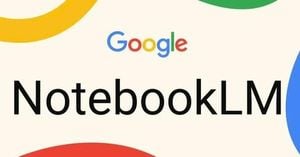On May 5, 2025, siblings Christopher Calvin Klatt and Vincent Constantin Klatt introduced their innovative product, Nose Energy, on the popular German television show "Die Höhle der Löwen". The pitch aimed to secure 100,000 EUR in exchange for a 20% stake in their company, which was valued at 400,000 EUR before investment. The product is a caffeine nasal spray designed to deliver an energy boost through the nasal mucous membranes, promising a quick and effective alternative to traditional energy drinks and coffee.
The spray contains a blend of ingredients including caffeine, ginseng, and green tea extract, which are intended to provide an immediate energy kick. The Klatt brothers explained that two sprays are roughly equivalent to the effect of a cup of coffee or a can of energy drink. This unique delivery method allows for rapid absorption, making it a convenient option for those on the go.
During the pitch, the founders expressed optimism, stating, "We expect everyone to be a little excited." Their enthusiasm was met with mixed reactions from the investors, with Tijen Onaran quickly opting out due to a lack of confidence in the product's effectiveness. Carsten Maschmeyer proposed to co-invest, while Tillman Schulz and Ralf Dümmel offered terms that matched the sought-after investment. Nils Glagau also showed interest but emphasized the need for scientific validation of the product.
Ultimately, Ralf Dümmel secured the deal, but shortly after the show, significant concerns arose regarding the legal classification of Nose Energy. Experts flagged potential issues regarding whether the nasal spray could be marketed as a food product. This uncertainty led to fears that the product might not be allowed for sale in retail if classified incorrectly.
To navigate this complex legal landscape, the Klatt brothers decided to pivot their product from a nasal spray to a mouth spray, rebranding it as Mouth Energy. This change allowed them to classify the product as a dietary supplement, which is subject to less stringent regulations than nasal sprays. The new formulation retains the core benefits of the original product, offering a quick energy boost through the oral mucosa instead of the nasal passages.
Mouth Energy is now available in approximately 10,000 retail locations, including major chains like Kaufland, Netto, Müller, and Rossmann. The retail price for the product is set at 9.99 EUR, with production costs estimated at 2.50 EUR per unit. The product targets a diverse audience, including athletes, students, gamers, and anyone looking for a quick energy boost without the sugar and additives found in many energy drinks.
In addition to caffeine, Mouth Energy contains glycerin, sea salt, vitamin C, and various natural plant extracts. Each package contains around 35 servings, with the recommended dosage being one to two sprays per nostril, up to four times daily. The Klatt brothers have positioned their product as a healthier alternative to conventional energy sources, emphasizing its lack of sugar and artificial additives.
The reaction from the market has been positive, with many consumers appreciating the convenience and effectiveness of Mouth Energy. The product has generated interest not only for its unique delivery system but also for its potential health benefits compared to traditional energy drinks, which often contain high levels of sugar and other stimulants.
However, the transition from Nose Energy to Mouth Energy has not been without challenges. The initial excitement surrounding the nasal spray's unique formulation quickly turned into a legal and regulatory headache. The Klatt brothers had to navigate a complicated approval process, which required them to rethink their entire business model and product strategy.
Experts have raised concerns about the long-term health effects of caffeine consumption, regardless of the delivery method. The European Food Safety Authority (EFSA) recommends that adults limit their caffeine intake to no more than 400 mg per day. The daily maximum dose for Mouth Energy is stated to be 340 mg, which is close to the recommended limit. This highlights the importance of responsible consumption, especially among individuals who may be sensitive to caffeine.
Despite these challenges, the Klatt brothers remain optimistic about the future of Mouth Energy. They believe that their product meets a growing demand for quick and effective energy solutions in a fast-paced world. As lifestyles become increasingly hectic, the need for convenient and health-conscious energy options continues to rise.
In conclusion, the journey of Nose Energy to Mouth Energy exemplifies the challenges and opportunities faced by startups in the competitive food and beverage industry. It also underscores the importance of adaptability in business. By pivoting their product and addressing regulatory concerns, the Klatt brothers have successfully launched Mouth Energy, offering consumers a novel way to boost their energy levels on the go.





